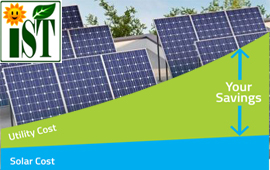The Ministry of Power has previously announced new EV charging infrastructure standards and guidelines. In compliance with the rules, the state government has fixed the ceiling cost of service charges to be charged by electric vehicle public charging stations. It approved the Rs 12.06 + applicable GST service cost maximum for electric vehicle rates covered by State/Central subsidies.
it is still less expensive than petrol and diesel. “It costs Rs 300 if any four-wheeler takes 25 units to completely charge their cars.” “You can’t even get three litres of petrol with the same quantity of petrol,”
Car comparison between petrol, diesel and electric vehicles
If the price of petrol is considered at Rs 100 per litre and mileage is considered 16 km per litre, the cost of the car, per kilometre, will be about Rs 6.25.
If the price of diesel is considered at Rs 95 per litre and mileage is considered 22 km per litre, the cost of the car, per kilometre, will be around Rs 4.31.
Whereas, an electric vehicle requires 30.2 units of electricity on being full charged, therefore if we consider Rs. 6 per unit as the electricity cost then it would cost Rs 181.2 for getting charged fully and then it would run for about 300km. In this way, its cost per kilometre will be close to 60 paise.
The cost of charging an electric vehicle (EV) in Mumbai would work out to Rs 15 per unit, according to the Brihanmumbai Municipal Corporation (BMC). As per their calculations, an electric car would take anywhere between 20 and 30 units to be fully charged and it would cost the user Rs 200 to Rs 400.
In Delhi, the government has fixed Rs 4.5 per unit for low tension charging of e-vehicles and Rs 5 per unit for high tension EVs. There would be a service charge based on the charging facility also. So it would cost anywhere between Rs 120 and Rs 150 for a fully charged EV.
As per the infrastructure guidelines set by the government, it is compulsory to set an EV Charging station at every 3km in cities and 25kms on Highways on both sides. For long-range and heavy-duty vehicles, there should be a charging station at every 100kms on both sides of the road (mostly Highways).
Cost of Setting Electric Charging Station in India
Cost of setting EV charging station in India varies from Rs. 1 Lakh to Rs. 40 Lakhs depending on the types of chargers and investment one is willing to make. However, considering a broader scenario and a supply of 250KVA EV Station below is the estimate.
| Charger Type | CCS – 60kW | CHAdeMO – 60kW | Type 2 AC – 7/22kW | Bharat DC-001 – GB/T | Bharat AC-001 |
| Approximate Cost | 12,50,000 | 12,50,000 | 1,00,000 | 2,40,000 | 60,000 |
- New Electricity Connection (250 KVA): 7,50,000 /-
- Civil Works: 2,50,000 /-
- EVSE Management Software + Integration: 40,000 /-
- Technicians, Manpower, Maintenance etc: 3,50,000 /- yearly
- Advertising and Promotion: 50,000 /-
- Land Lease (if the land is at lease): 6,00,000 /- yearly
Total Approximate: Rs. 40,00,000 /- (First year including setup and if the land is at lease)
Annual maintenance from the second year: Rs. 10,00,000 /- (Including land lease)
Minimum Infrastructure Requirement for EV Charging Station
- A transformer with subsequent substation must be installed along with safety equipment
- For the purpose of metering/ termination, there should be a 33/11KV Cable with related equipment.
- Appropriate Civil works should be there
- There should be adequate space for charging and Entry / Exit of Vehicles
- Necessary local certifications, if any required. (Varies state to state)
Understanding the Business (Revenue Model)
Revenue projections are something which we do not have control on. But we can assume a scenario and work out a feasible projection for the next 5 years.
If we take the above investment of Rs. 40 Lakhs, we get approximate of 500-1000 kWh per day EV power for consumption.
 Certificate in Rooftop Solar Project In rooftop solar sector a small entrepreneur needs a strong knowledge about off-Grid, On grid, hybrid system designing and financial benefit, bankable report preparation. This course will cover all aspect of designing and procurement, installation, financial modelling and customer nogotiation skills.
Certificate in Rooftop Solar Project In rooftop solar sector a small entrepreneur needs a strong knowledge about off-Grid, On grid, hybrid system designing and financial benefit, bankable report preparation. This course will cover all aspect of designing and procurement, installation, financial modelling and customer nogotiation skills.

No comments:
Post a Comment